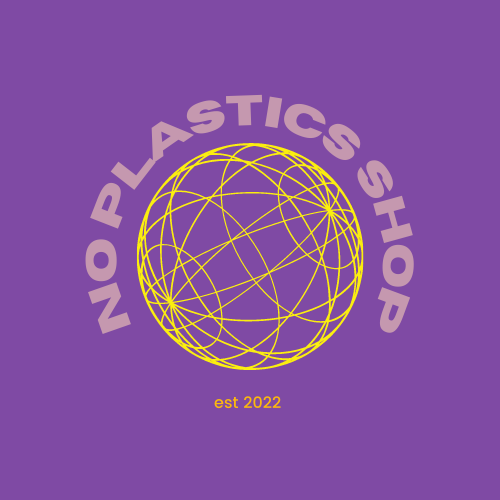Top Brands Showcasing the Best Zero Waste Belts: Fashion Alternatives for a Sustainable Wardrobe
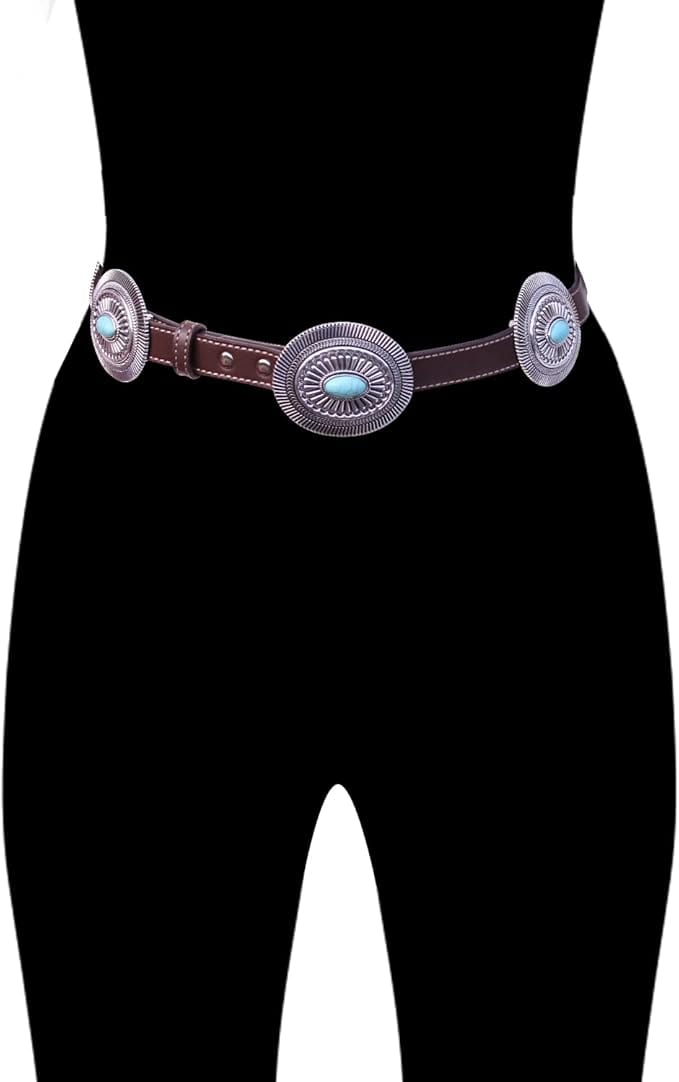
The belts we wear don’t typically end up in the wash to shed microplastics like synthetic clothes but they do eventually need replacement, disposal of which presents the same plastic pollution problem.

MoYoTo Store. genuine leather, vintage copper buckles
What are Eco-Friendly Belts?
Eco-friendly belts are made from sustainable materials, minimizing environmental impact by not degrading into microplastics. Stay clear synthetic belts commonly found on the market today.
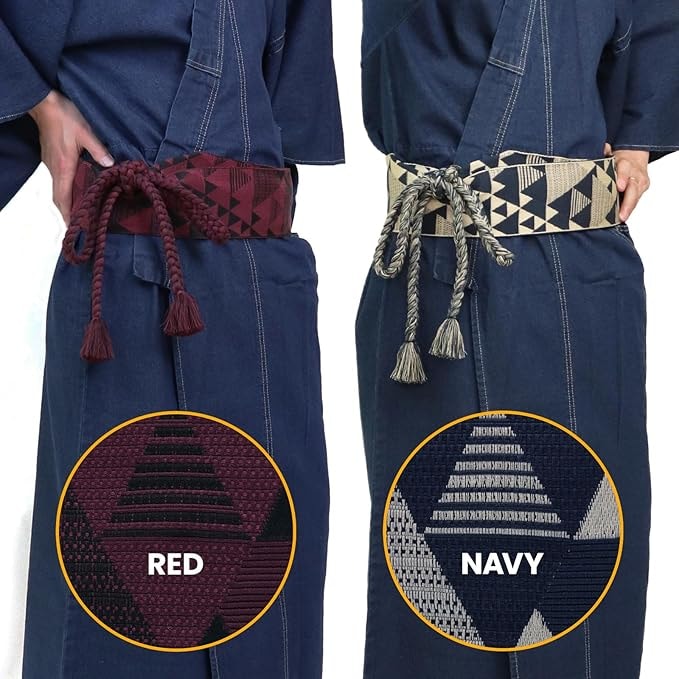
SWINGPLUS. men's 100% cotton obi belts, women's obi belts Here
Ethical fashion does NOT include the use of faux (PU) leather. Harmful to the environment, this common material is anything but cruelty-free and no suitable, sustainable alternative.
Avoid Plastic Vegan Leather
Touted as vegan friendly - an eco-friendly option that avoids the use of animal products - these synthetic products are nonetheless environmentally hazardous; a fact that health conscious consumers are rarely made aware of.
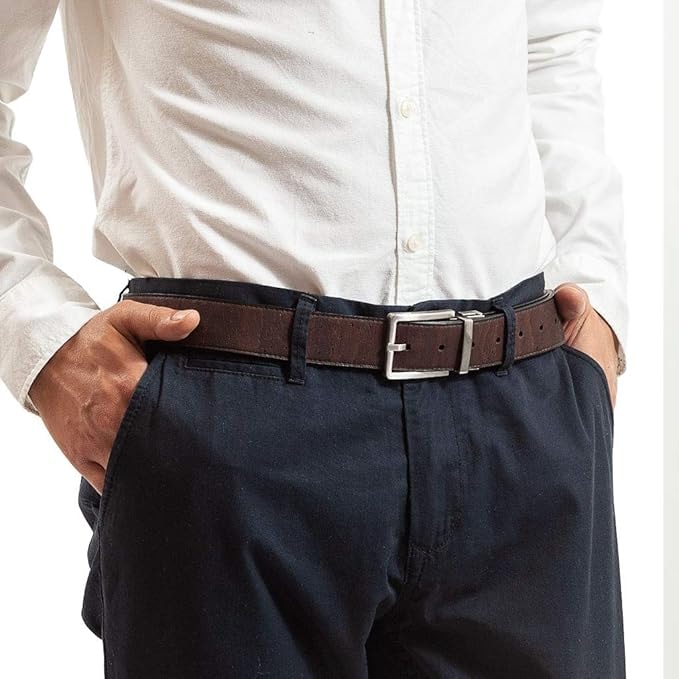
Corker Store. men’s belt, certified cork, made from the cork of oak trees!
Components of zero waste belts fashion.
The best Eco-friendly belts are made from natural plant-based fibers or genuine animal leather. The later perhaps not an ethical choice for vegans, but better ultimately for the environment.
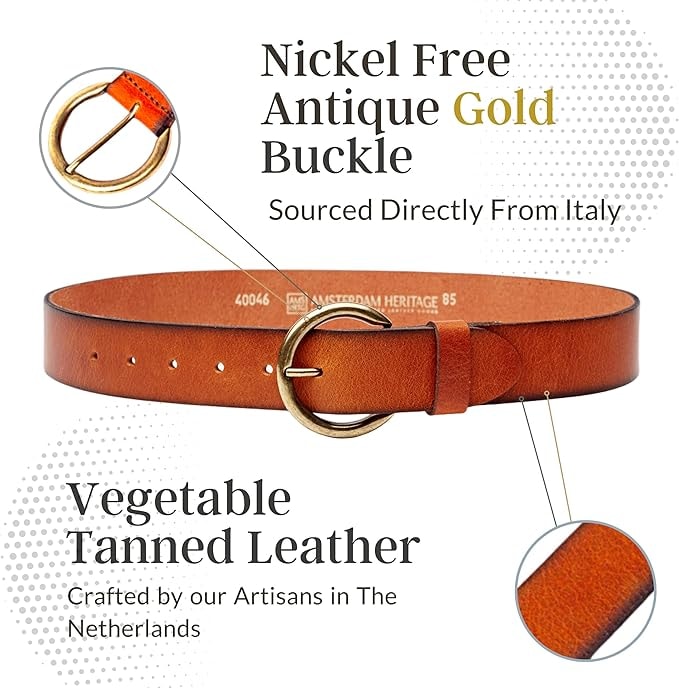
Amsterdam Heritage** durable leather from an artisanal studio**
As with Zero Waste Hats, make sure your belt accessories are just as microplastic free and fully sustainable as your other clothes.
Environmental PU Hazard
The majority of belts sold today are made of fake or vegan leather, a highly toxic PU plastic. The widespread use of polyurethane (PU) in consumer products like faux leather belts poses significant hazards to the environment. Vegan leather, on the other hand, is a more sustainable alternative to PU leather.
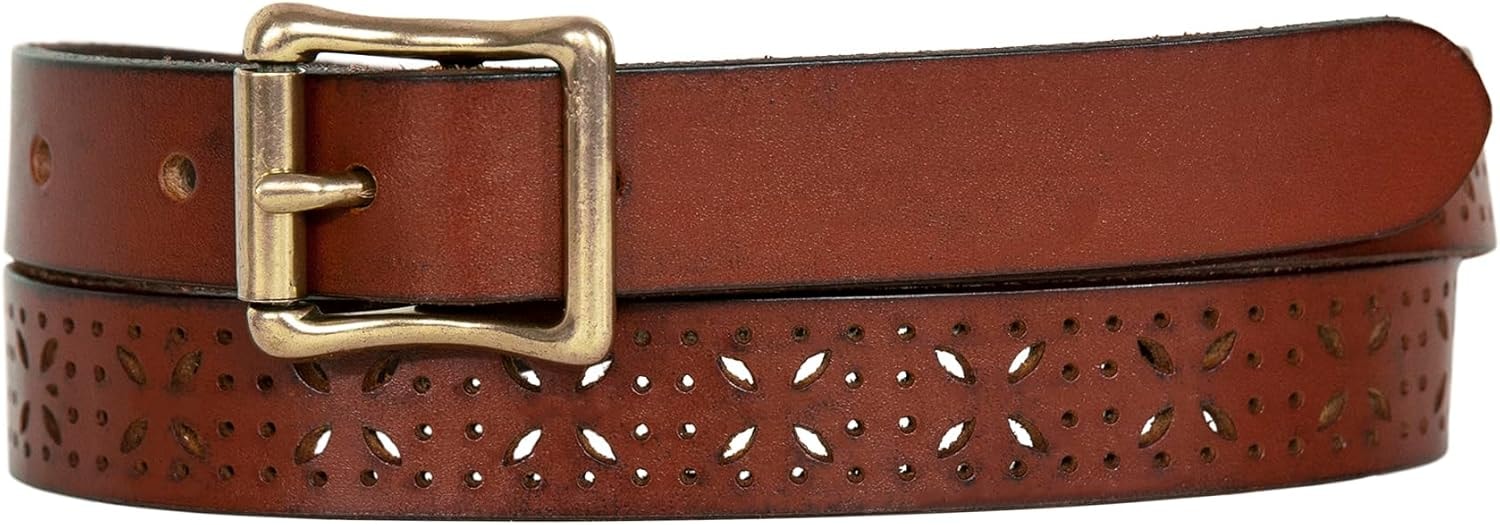
Eddie Bauer** 100% genuine leather, plain or fancy version**
While faux leather is often marketed as an ethical alternative to genuine leather, its production and disposal have severe ecological impacts.
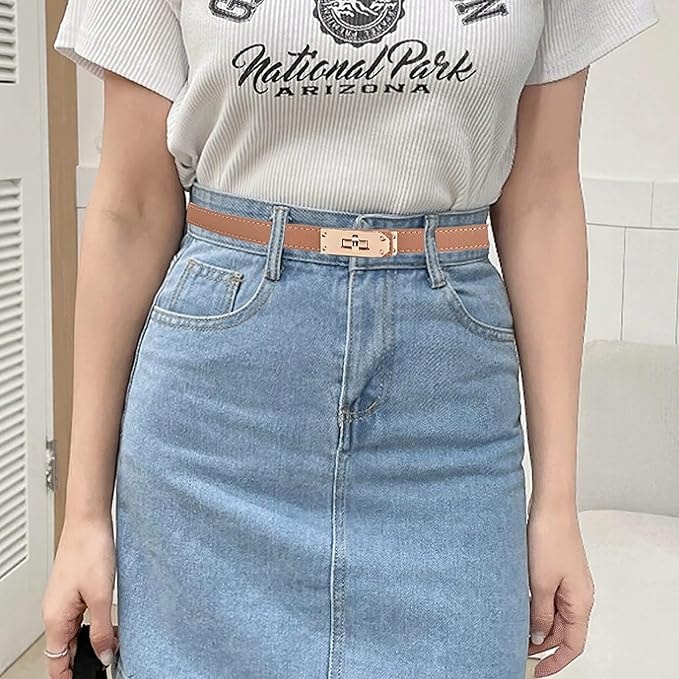
FENDLY Store** genuine leather belt**
The manufacturing process of PU involves harmful chemicals that pollute air and water. Additionally, PU products are not biodegradable, leading to long-term waste in landfills. For the general public, it’s crucial to be aware of this environmental concern when choosing faux leather belts or similar items, and to consider more sustainable alternatives.
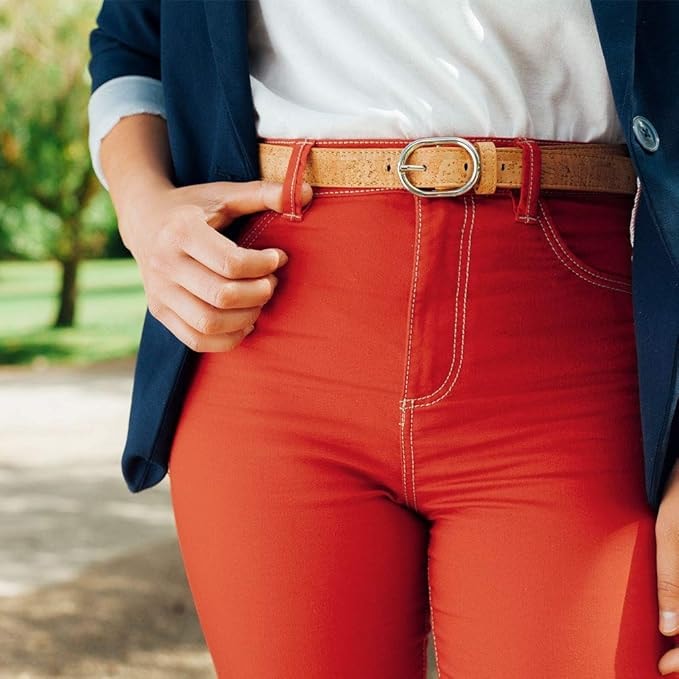
Corkers. genuine cork, corkor belts are the only plant based vegan faux leather, zero waste, peta approved
Sustainable Materials for Belts
Natural Fibers
Natural fibers like organic cotton, hemp, raffia or rattan are great alternatives to synthetic materials. They are biodegradable and gentle against jeans and other material. Natural fibers can be used to create simple and fancy versions of belts. Durable as ethical vegan accessories to any outfit, from loose dresses to tight dresses, loose tunic to casual pants. Vegan leather, a plant-based alternative to animal leather, is also a sustainable option.
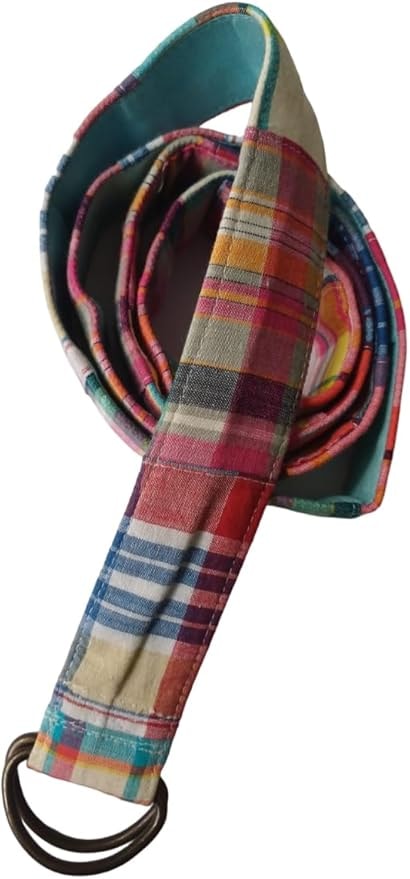
KVR Store. woven cotton, with many color & patterns to choose from
Leather Belts with a Twist
Ethical leather belts can be made from certified sustainable leather or recycled leather. They can be made from animal leather that is sourced from the entire supply chain. Leather belts can be combined with eco-friendly materials like flax, cotton or recycled nylon.
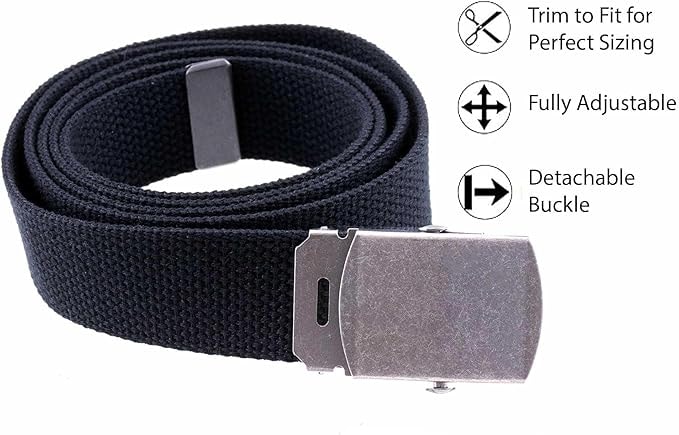
Thomas Bates. 100% cotton military cargo belt with removable nickel buckles
Ethical fashion includes sourcing leather responsibly, ensuring that the materials used are sustainable and environmentally friendly.
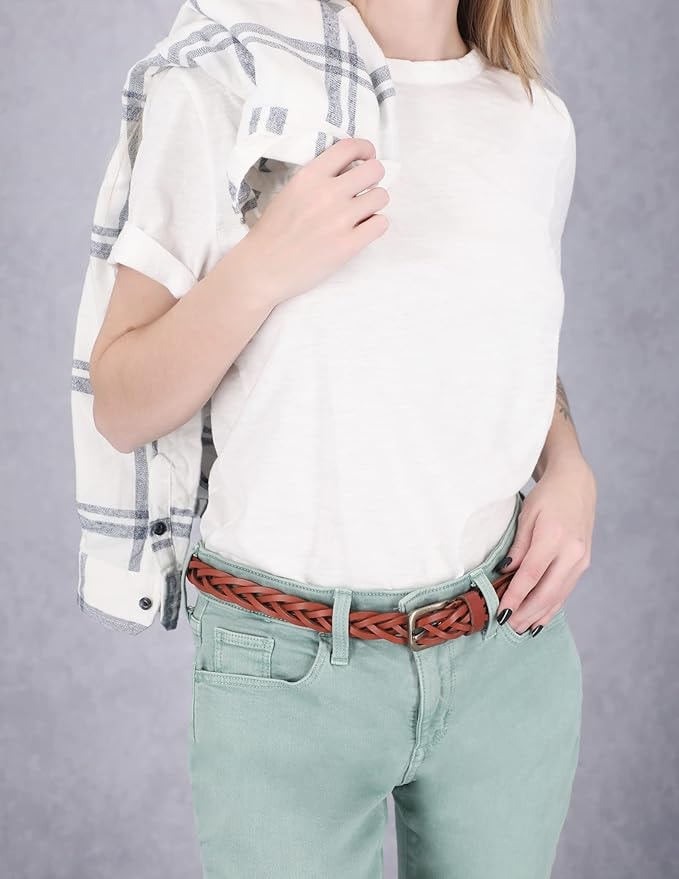
Timberland. durable genuine leather, simple and fancy version choices
Other Brands of Sustainable Belts
Recycled Materials
Some sustainable brands making use of materials like recycled nylon, recycled plastic from recycled water bottles and repurposed fabric scraps can be used to create eco-friendly accessories. Avoid brands like Stella McCartney and Matt & Nat and others who incorporate plastic vegan leather into their products.
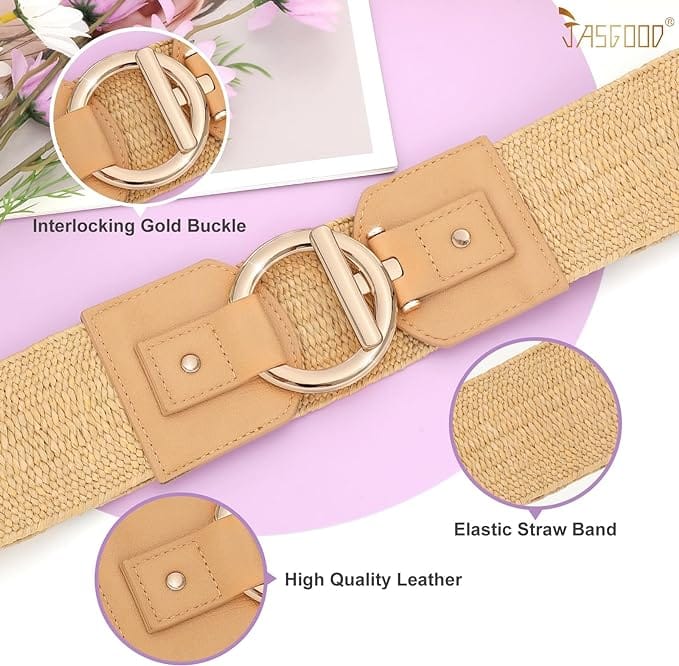
Waist Wow Store makes woven rattan straw belts, although it is unclear if any plastic elastin is blended to make it stretchable?
While not plastic free these brands help promote recycling and conserving resources. These materials can be used to create stretch belts, adjustable belts, and while disposal remains an issue some of these brands no doubt have a positive impact of their own in the world of fast fashion.
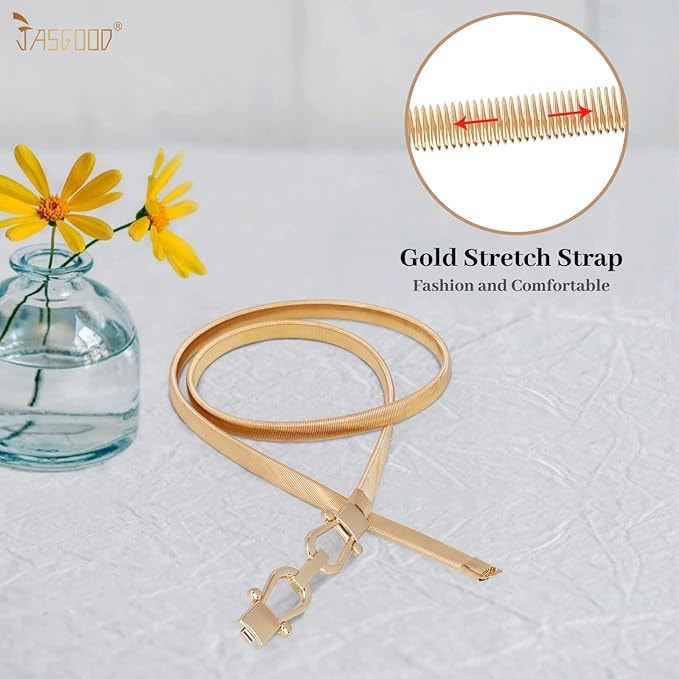
JASGOOD. metal belt, beautiful accessory material,
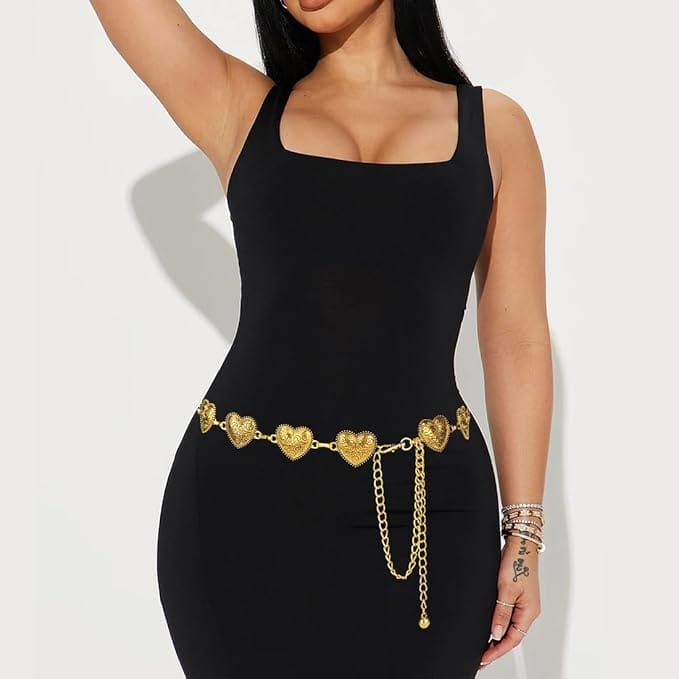
Heyjoin metal concha belts. many styles to choose from
Patagonia
Patagonia offers a range belts made from recycled nylon and organic cotton. Not plastic free but are designed for outdoor enthusiasts, perfect for hiking, camping, and more. Patagonia is a brand long committed to their own idea of how to create products that are better for our planet by use of recyclables.
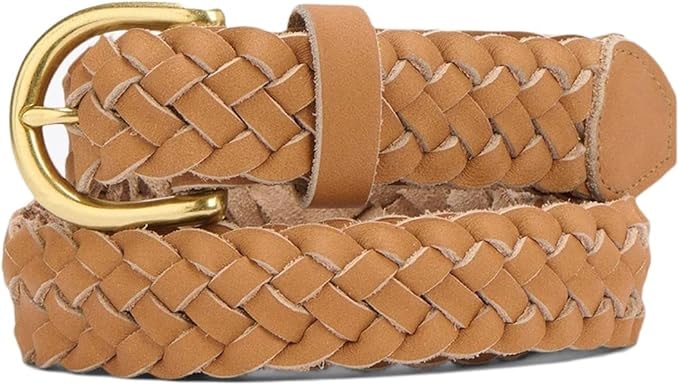
Nisola Store** handmade genuine leather**
Nisolo
Nisolo offers a range of belts made from certified sustainable leather and recycled materials. Accessories designed for everyday fashion and are perfect for work, school, and more. Nisolo is committed to ethical fashion and reducing waste in the fashion industry. They also use plastic vegan leather in some of their products. Avoid these.
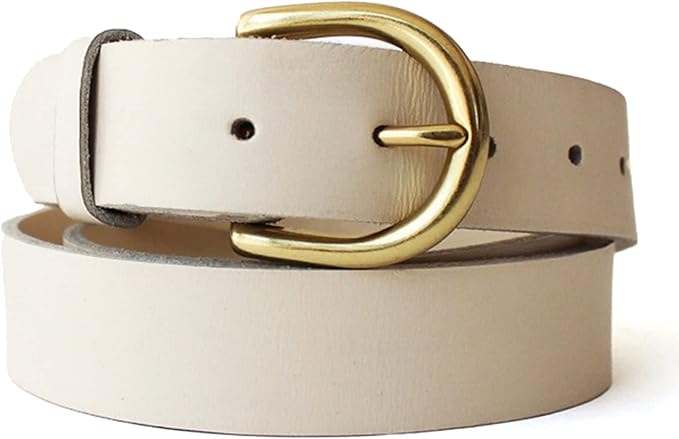
Nisola Store. handmade leather from an ethical factory in Peru with safe working conditions
Unbelts
Unbelts, a Canadian company, offers a range of earth-friendly belts made from recycled materials and natural fibers. Their belts are designed for everyday wear, are perfect for work, school, and more. While not devoid of plastic, Unbelts brand is committed to further promote sustainable fashion by reducing waste in the fashion industry. Their use plastic leather however in their products presents the same disposal problem of any plastics.
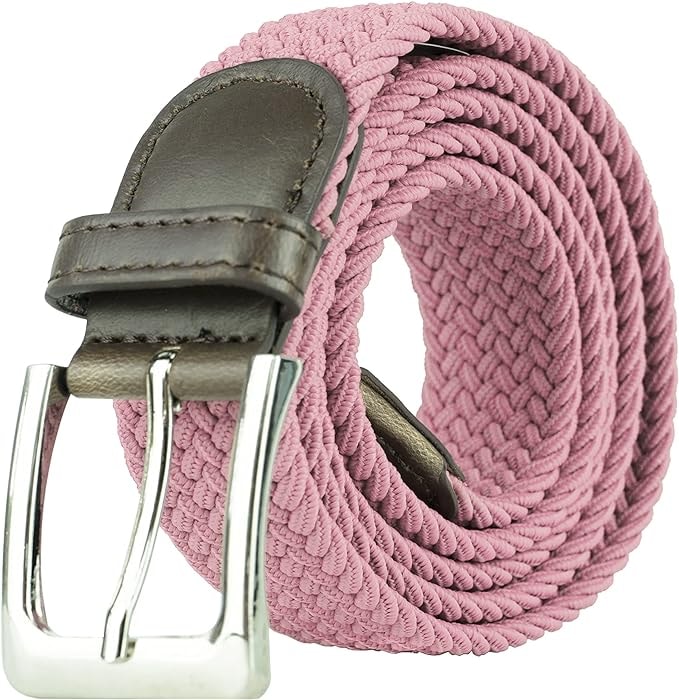
Gelante. breathable cotton canvas, many color choices
Benefits of Switching to Sustainable Belts
Sustainable belts reduce waste and minimize environmental impact. Made from planet friendly materials that are gentle against skin and clothes. An excellent addition to your everyday fashionable and plastic free wardrobe.
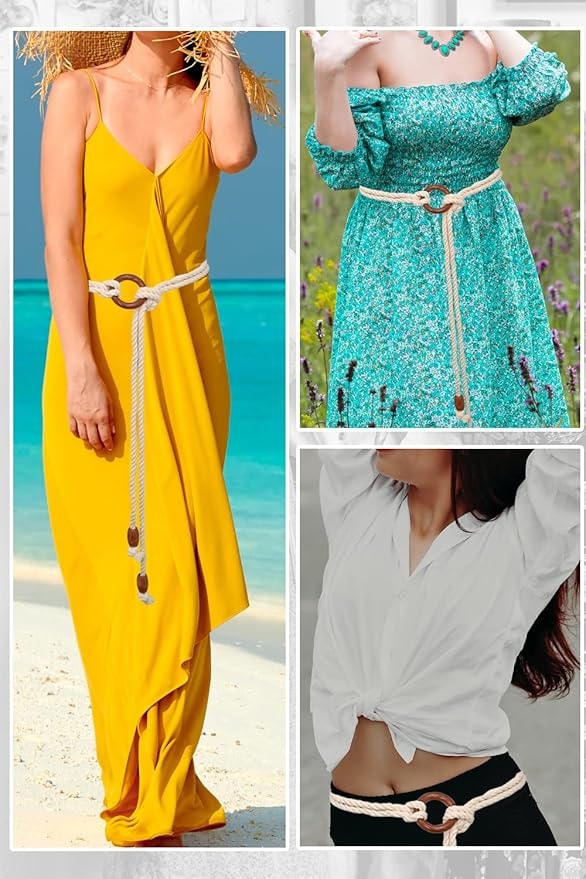
TeeYee Store. woven waxed cotton/hemp rope belt, more styles Here
While faux vegan leather - except cork - does NOT in reality offer a cruelty-free and eco-friendly alternative to traditional leather; never a great choice for a conscious consumers.
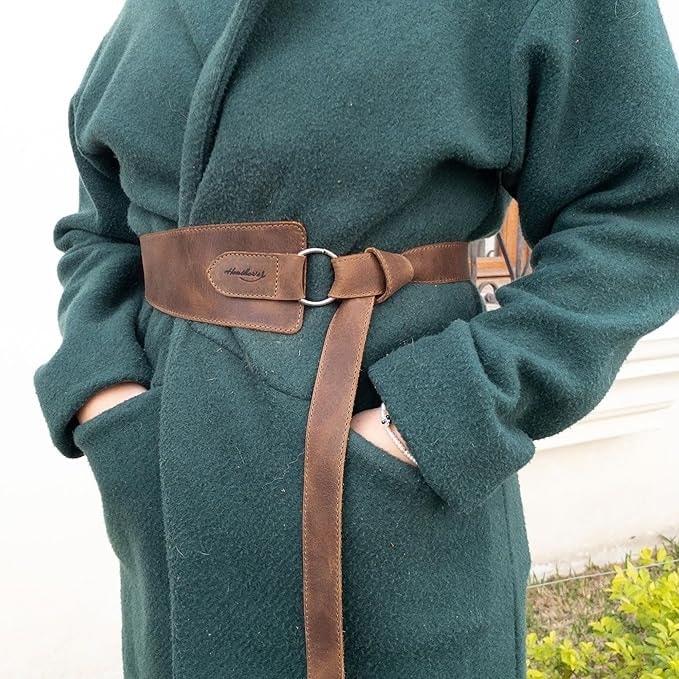
Heather’s** handcrafted leather from Guatamala, another ethical brand committed to fair trade and fair wages**
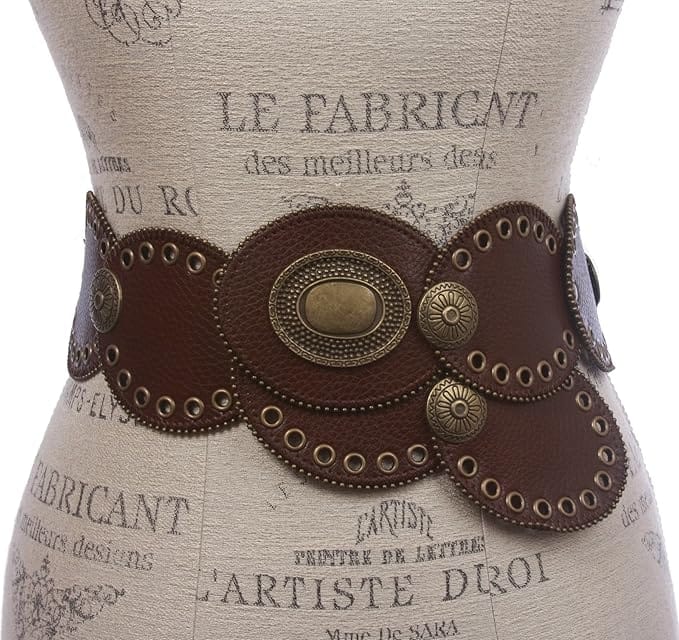
Beltiscool Store. about the ONLY wide concha belt to be found, almost all these days are made of dreadful PU
How to Shop for Sustainable Belts
Look for brands that offer sustainable belts made from eco-friendly materials. Check the materials used to make the belt and ensure they are sustainable. Never consider faux vegan leather - except cork- as a cruelty free option.
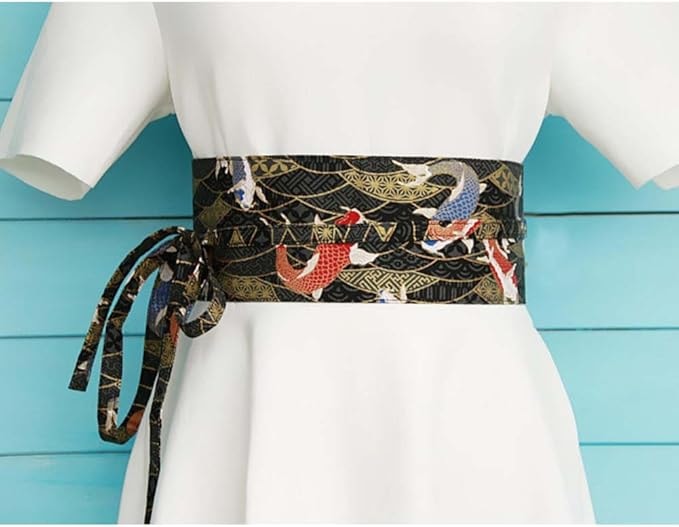
Fancy Pumkin. 100% cotton tie kimonos, many Japanese art choices
Consider the entire supply chain and ensure that the brand is committed to fair trade, good wages and zero waste fashion. Shop from brands that offer certified sustainable leather, recycled or plant based materials.
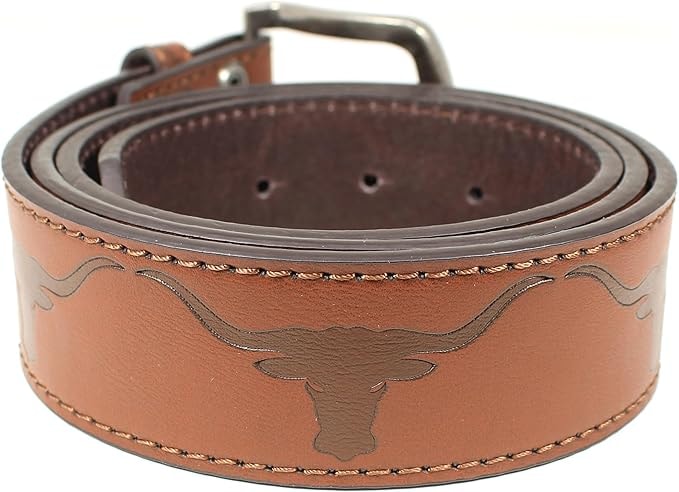
BC Belts. durable genuine leather
Perfect for cowboys, outdoor enthusiasts, fashion enthusiasts, and anyone looking to not buy plastic and reduce their environmental impact.
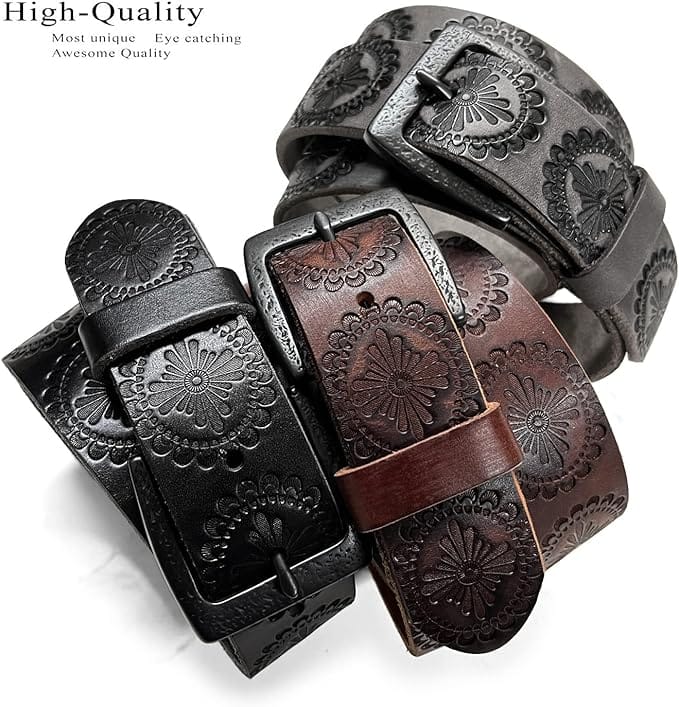
Belts.com Store. cowgirl leather, more western themes at their Store
Where to Shop for Sustainable Belts
Check online marketplaces like Amazon or Etsy for zero waste belt options. Amazon is very good at excluding bubble wrap and other plastics when shipping if asked - all my boxes now come plastic free. Visit local stores that offer sustainable fashion options. Consider shopping secondhand for ethical belts.
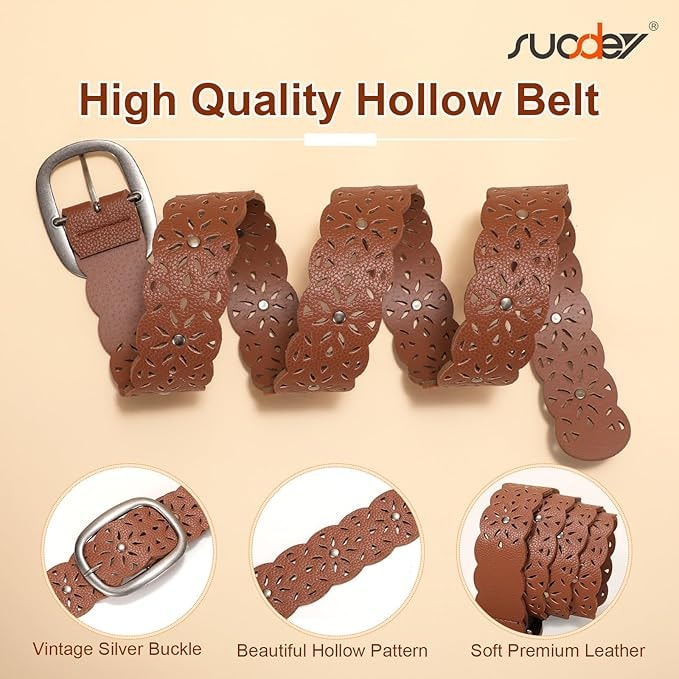
SUOSDEY. durable genuine leather
Sustainable belts are a great addition your everyday fashion. Made from earth-friendly materials that reduce waste and negate microplastic pollution. By switching to sustainable belts, you can reduce your environmental impact and contribute to a more sustainable fashion industry.
FAQs
Why does vegan not always mean sustainable or earth friendly?
Many vegan products are either packaged in plastic, or made of plastic themselves ( like waist belts )which has a notoriously negative impact on the environment. In fact, it's estimated that 8.3 billion tons of plastic have been produced since the 1950s, with the vast majority ending up in landfills or oceans.
This means that even if you're striving to be plant-powered and cruelty-free, your plastic consumption can still be harming the planet in a major way. Take it from someone loves animals, hates cruelty, and who's diet is mostly vegan, plastic is right up there among the foremost evils today on our planet. We are literally choking in it.
What are the benefits of zero waste waistline belts?
Zero waste waistline belts are not only good for the environment, but they also promote a circular economy. What does that mean, you ask? Well, it means that the materials used in the production of these belts are sourced in a sustainable manner, and any waste generated in the production process is minimized and handled in an environmentally responsible way. Pretty cool, right?
Not to mention, choosing a Corker brand vegan belt means supporting a small, independent business that is dedicated to sustainability and ethics. Say goodbye to fast fashion and hello to conscious consumerism.
How do I care for my zero waste waistline belt?
For starters, avoid getting it wet or exposing it to any harsh chemicals or solvents. If it gets dirty, you can gently wipe it down with a damp cloth and some mild soap, but make sure you dry it off completely afterwards.
Now, if you're like me and tend to accumulate a bit of sweat around your midsection, you might be wondering how to deal with that. Fear not, my friend! Simply sprinkle some cornstarch or baking soda on the offending area and let it sit for about 30 minutes before brushing it off. Voila, fresh as a daisy!
Lastly, if you want to give your belt a little extra love (and who doesn't?), you can apply some leather conditioner or coconut oil to keep it soft and supple.
What is the environmental impact of PU plastics?
The production and disposal of PU plastics have significant environmental impacts. The manufacturing process releases harmful chemicals and consumes large amounts of non-renewable resources. Additionally, PU plastics are not biodegradable, leading to long-term environmental pollution when discarded.
Are there alternatives to PU plastics in belt making?
Yes, there are several eco-friendly alternatives to PU plastics, including recycled materials, plant-based leathers, and other sustainable fabrics. These materials offer similar durability and aesthetic qualities without the same environmental drawbacks.



